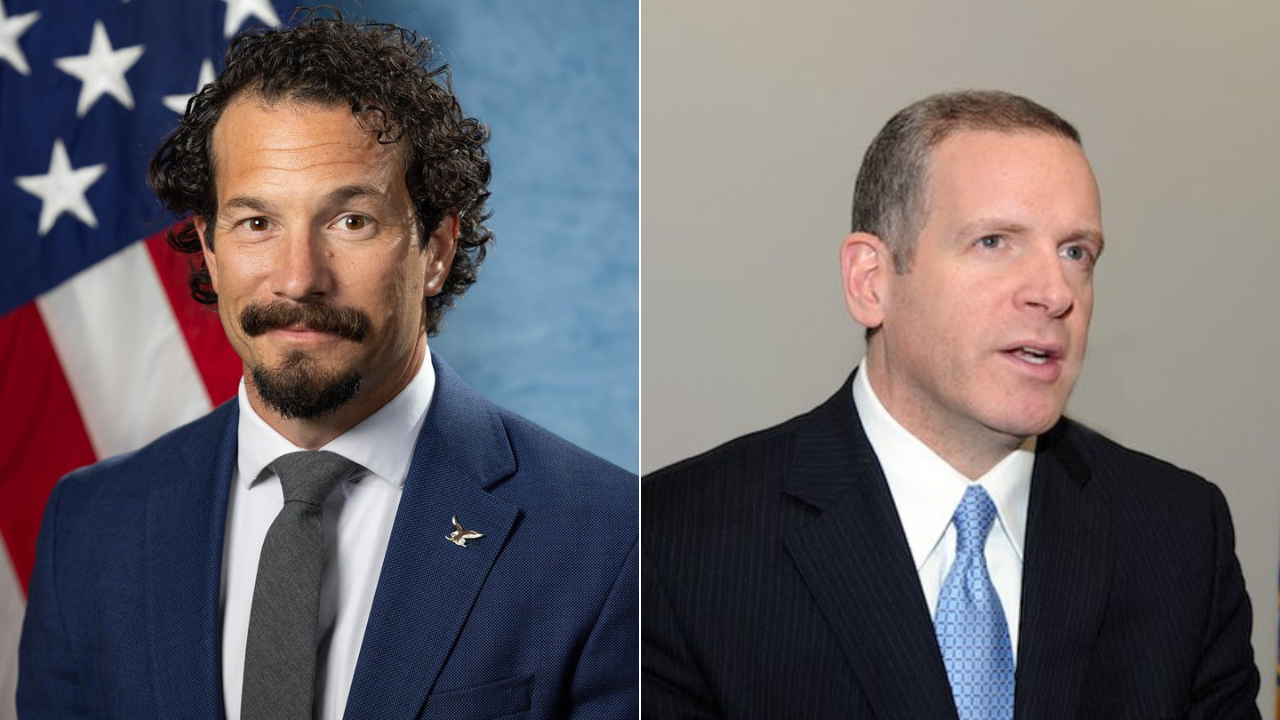FBI Leadership Shakeup: Acting Director Driscoll Takes the Helm Amidst Transition
The FBI is currently navigating a period of significant transition, marked by the unexpected retirement of Deputy Director Paul Abbate and the departure of long-time Director Christopher Wray. This power vacuum has led to the appointment of veteran FBI agent Brian Driscoll as the acting director, a move that has sent ripples throughout the agency and sparked intense speculation about the future direction of the bureau.
A Sudden Shift in Power: Abbate's Unexpected Retirement
Paul Abbate, a highly respected figure within the FBI with nearly three decades of service, shocked colleagues and the public alike when he announced his abrupt retirement. His decision to step down just as the agency prepares for a new director has raised eyebrows, leaving many to question the timing and the reasons behind this unexpected departure. Abbate's leadership tenure saw him guide the bureau through numerous complex investigations. He headed critical field offices such as Detroit and Washington, and effectively oversaw both the criminal and cyber branches. It's safe to say, his exit from the bureau signifies a significant loss to the organisation.
Abbate’s legacy: more than just leadership
While Abbate’s departure marks the end of an era, it's also important to highlight the role of other FBI figures such as Christopher Wray, whose 7 years at the helm have significantly shaped the direction and approach of the agency. The transition from one leadership era to another always comes with its own hurdles, and these shifts could indeed bring about an entirely different perspective on things.
The Rise of Brian Driscoll: A Veteran Agent Steps Up
Stepping into the challenging role of acting director is Brian Driscoll, a seasoned FBI agent known for his leadership experience. Most notably, he previously commanded the elite Hostage Rescue Team, showcasing his skills and experience. Before this role he had a stint as special agent in charge of the Newark field office, another important part of his rich professional profile. In accepting the position, Driscoll stated in an email to the bureau’s staff that the team’s focus would be on ensuring that they keep serving the needs of the American people, emphasizing their commitment to the public. Driscoll has assured staff that his tenure would prioritize ensuring a seamless transition of power and maintain operational efficiency during this critical period.
Driscoll’s priority: stability and continuity
The continuity of operations is indeed a vital component during periods of significant leadership change. It helps to keep up the morale of the staff and prevents major disruptions. Any loss in momentum or productivity in the case of such an important federal law enforcement agency could have adverse effects. With this being so, his focus is on ensuring that ongoing investigations are completed without setbacks, maintaining efficiency, and preserving the Bureau’s mission critical functionality, keeping up both its reputation and standards.
Navigating the Storm: The Implications of Patel's Nomination
The change in leadership at the FBI also brings into the spotlight the incoming nomination of President Trump's nominee, Patel, whose appointment is generating significant debate. Democrats are actively voicing their concerns about the implications that this change in leadership might bring along with it, and a major topic is Mr. Patel’s track record and views. His critics and those against his nomination bring up many questions regarding his alignment with the goals and operations of the FBI. The Senate confirmation hearings will undoubtedly draw significant attention to the controversies surrounding his nomination, with both supporters and detractors expected to strongly present their respective perspectives.
The need for Transparency
An open debate and transparency is important here. There needs to be a comprehensive overview of the nominee's background, and experience, as well as his intentions and plan of approach regarding future issues concerning the FBI’s operation. This transparent communication will indeed be helpful in clarifying all doubts, fostering public confidence, and minimizing concerns of any kind.
The Future of the FBI: Uncertainty and Challenges Ahead
The FBI stands at a crossroads, facing considerable uncertainties as it undergoes this substantial leadership shift. While the appointment of Driscoll offers some measure of stability in the short-term, the long-term ramifications of Abbate's departure and the incoming administration will likely shape the bureau's priorities, operations and public perception. The forthcoming confirmation hearings will surely play a pivotal role in defining this trajectory and this uncertainty will certainly remain until the hearings are conducted and Mr. Patel is officially voted in or not.
A look ahead at ongoing Investigations
It's certainly pivotal to keep an eye on how these ongoing investigations evolve and how they continue operating under this new era of the FBI’s operations. Any changes in strategies, approaches, policies, or even the involvement of some parties can be noteworthy and may require greater scrutiny and close observation. Any major adjustments to policies and approaches might influence future developments in important investigations that are still in process.
Take Away Points:
- The FBI is undergoing a period of significant transition with the departure of long-serving director Christopher Wray, and his deputy Paul Abbate.
- Brian Driscoll, a seasoned FBI agent with proven leadership, will serve as acting director.
- The nomination of President Trump’s nominee for FBI director is arousing controversy, with critics highlighting concerns and sparking debates among Democrats.
- The confirmation hearings will be critical in shaping the future direction of the agency. The upcoming confirmation hearings will be highly significant for the ongoing investigations in progress.
- The FBI's leadership shakeup could cause future investigations and policymaking to be changed.




